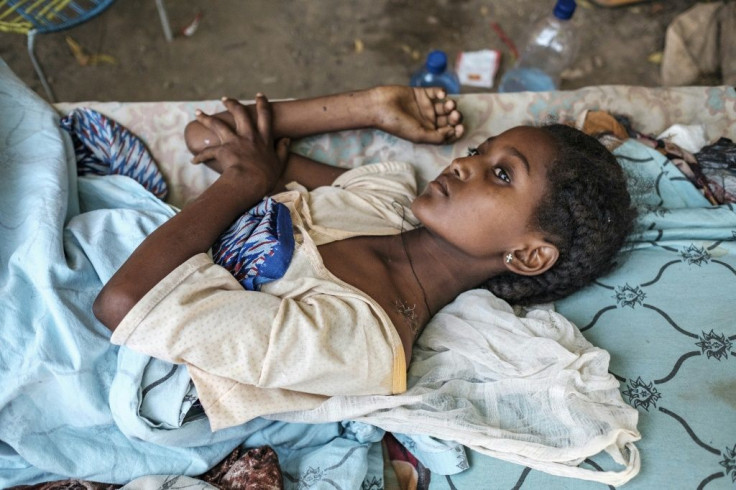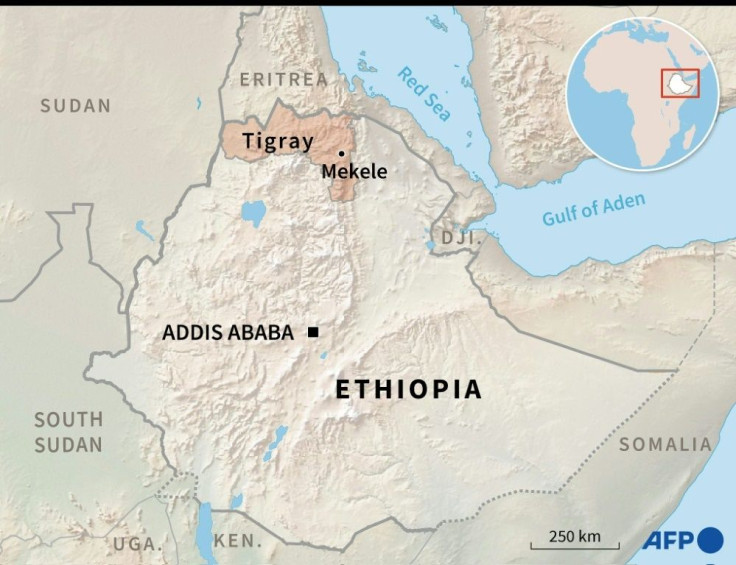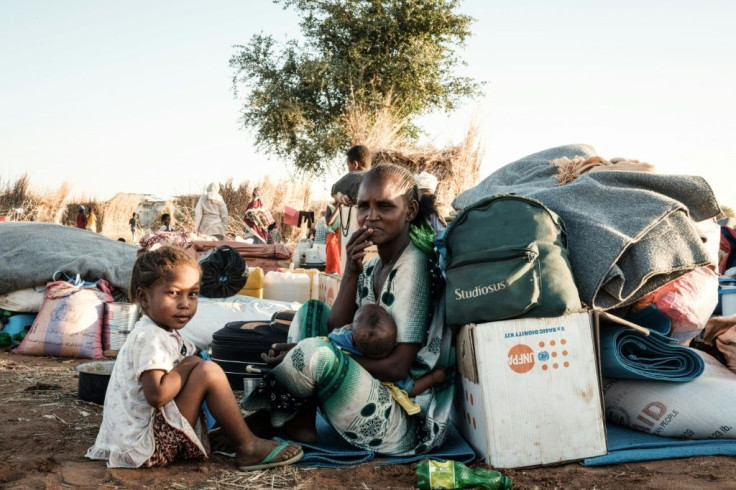Ethiopia, UN Tussle Over Humanitarian Access To Tigray
Friction mounted between Ethiopia's government and the UN Tuesday over access to the northern region of Tigray, as alarm grew at the plight of civilians and refugees more than a week since fighting was declared over.
As the United Nations urgently appealed for access to deliver aid, the Ethiopian government said a UN team had been shot at, and briefly detained, for ignoring instructions and driving through checkpoints.
"The humanitarian situation is increasingly critical and it is vital that humanitarians are able to urgently assist people," UNHCR spokesman Babar Baloch told reporters in Geneva.
"Sadly, so far, the badly-needed access is not there," said Baloch.
The UN Secretary-General's spokesman said in a statement Tuesday, that it was "essential... to re-establish the delivery of public services and guarantee unfettered humanitarian access" in Tigray.

Ethiopian Prime Minister Abiy Ahmed ordered troops into Tigray on November 4 following alleged attacks by Tigray People's Liberation Front (TPLF) forces on federal military camps in the northern region.
The move marked a dramatic escalation of tensions between Abiy and the TPLF, which dominated Ethiopian politics for nearly three decades before anti-government protests swept Abiy to office in 2018.
Abiy, the winner of last year's Nobel Peace Prize, declared victory on November 28, although the TPLF has vowed to fight on.
Abiy said Monday that efforts were ongoing to restore order, amid continued fighting and lawlessness that is hampering relief efforts.

An agreement was announced between the UN and the Ethiopian government last week, but the region remains tightly restricted, access remains constrained and a communications blackout is still largely in place.
Jan Egeland, secretary general of the Norwegian Refugee Council, said Tuesday that despite that agreement he was, "deeply concerned to find that humanitarian access to the region is still significantly constrained."
"We have been standing ready to deliver food, emergency shelter and other essential materials for weeks, and we expected this deal to clear the way," he said.
In a sign of the tensions over where and how aid agencies can operate in Tigray, a UN team was shot at by Ethiopian forces on Sunday and briefly detained, an Ethiopian government spokesman said Tuesday.
Redwan Hussein claimed the UN team ignored instructions and drove through government checkpoints before being fired on.

"Some of the UN staff were actually detained and some were shot at," he said at a press conference in the capital Addis Ababa.
"They broke two checkpoints to drive to areas where they were not supposed to go, and that they were told not to go. When they were about to break the third one, they were shot at and detained."
"Now, of course, they're free," he added.
The incident occurred close to the town of Shire where, UN sources told AFP, the team had been trying to access camps for Eritrean refugees.
Redwan insisted the UN staffers were to blame for the shooting, claiming they had "indulged themselves in a kind of adventurous expedition".
"This country isn't (a) no-man's-land. It has a government," he said. "It must be clear that this is Ethiopia, a country with thousands of years of statehood, so no one can have a free ride. If anybody is told not to go, then they have to abide by it. You cannot ignore a government warning and then try to run roughshod (over) everybody."
Thousands have been killed in the fighting since the start of November, according to the International Crisis Group (ICG) think tank, while almost 50,000 have fled to Sudan.
Meanwhile, around 600,000 people living in Tigray depended on food handouts even before the fighting began.
Among them are an estimated 96,000 Eritrean refugees, many of whom fled neighbouring Eritrea's authoritarian government, and were living in four camps in Tigray.
UNHCR has been unable to reach the camps for over a month and it is thought that humanitarian stocks such as food and medicine would have run out.
Last week the UN said its agreement with the Ethiopian government guaranteed "unconditional access for humanitarian assistance" in government-controlled zones.
However, Redwan contradicted this on Tuesday.
"The agreement we entered is in the belief that the UN would collaborate with us and we the government would call the shots, so we coordinate, we lead, but we need assistance and a partner," he said.
"For some partners to drive alone, to move alone, isn't allowed. There is no such thing as unfettered access in every corner of Ethiopia," he added, echoing the language in the UN's earlier call for access.
© Copyright AFP 2024. All rights reserved.





















